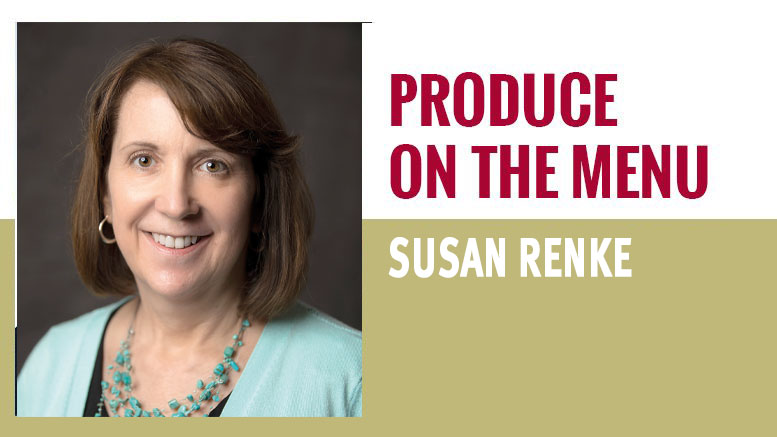Lessons from Loss…Creativity and Connections
November 4, 2020 | 4 min to read
The year 2020 has brought significant losses to the foodservice industry, with many iconic restaurants closing permanently. However, chefs and farmers have adapted creatively, forming partnerships to sustain their businesses. Initiatives like OpenTable Experiences have emerged, allowing restaurants to offer unique events and curated CSA boxes featuring local produce. These efforts have not only engaged customers but also supported local farmers, creating a spirit of collaboration that could define the industry's future.

Originally printed in the October 2020 issue of Produce Business.
Year 2020 has been marked with loss for families and for businesses across the country. The loss of livelihood has hit the foodservice industry and its entire supply chain particularly hard.
With in-door dining closures lasting many months and re-openings ongoing at reduced capacity, many restaurants are not able to stay profitable. In addition to major chains closing locations or going out of business (say goodbye to buffet-style restaurants such as Soup Plantation/Sweet Tomatoes), iconic restaurants such as K-Paul’s Louisiana Kitchen in New Orleans, Blackbird in Chicago, and Gotham Bar & Grill in New York City have permanently shuttered their doors. Neighborhoods in every city have a list of corner restaurant losses. These losses trickle back through the distribution chain to the fields of farmers suppling restaurants with their fruits and vegetables.
Are there any silver linings for restaurants and the produce industry during the pandemic?
Chefs and farmers have traits in common. Both have an entrepreneurial spirit and passion for what they do, often spending long days and nights at their craft. For chefs, that passion is food and hospitality; for farmers, it’s the land and the harvest. The passion to keep moving forward can breed creativity during challenging times.
Chefs are using fresh produce to form creative partnerships and open new avenues of revenue. The reservation platform, OpenTable, created OpenTable Experiences to partner with restaurants offering creative culinary events. Customers can find everything from line dancing lessons at a country bar to award-winning Chef Hugh Acheson, author of The Broad Fork: Recipes for the Wide World of Vegetables and Fruit, spinning vinyl from his own collection during Happy Hour at his restaurant Five and Ten in Athens, GA.
The Frog and The Peach in New Brunswick, NJ, featured New Jersey peaches in a late summer five-course tasting menu from Peach Carpaccio to Pork Tenderloin with Fermented Peaches, each course paired with a different wine and promoted on OpenTable Experiences.
Executive Chef Keith Morris leads the kitchen at Coopers Hall Winery and Taproom in Portland, OR. Chef Keith values his long-term relationships with local farmers in Oregon and Washington. When COVID hit, they worked with a limited staff to offer take-out for five weeks, but it was too difficult to keep everyone in the kitchen safe. Chef Keith’s first thought when they closed was to worry “what would happen to our farmers?”
To support their suppliers and keep customers engaged, Chef Keith created “Chef-Curated” CSA Boxes containing greens, cheeses, pickled onions, and spices. Included was a fact sheet on farms and the ingredients, along with a recipe card. Customers add chicken to create Hungarian Paprikash Sauce with Creme Fraiche & Dill, for example. When picking up CSA boxes, customers also purchased items such as a pint of berries or bottle of wine, providing add-on sales for the restaurant.
As its patio opened for outdoor dining, Coopers Hall re-introduced single ingredient-focused meals with “Beets, A Story,” a six-course meal featuring beets in every course, another OpenTable Experiences partnership. This idea was born when Chef Keith learned that a local farmer had 4,000 pounds of beets without a home due to the pandemic. Next up, a multi-course meal built around mushrooms.
Across the river in Vancouver, WA, the husband and wife team of Alan Maniscalco and Shan Wickham run local favorite Rally Pizza. When COVID hit they moved to take-out only, putting the farmer-focused dinner events they are known for on hold. Rally kept staff employed and business humming by connecting with customers on social media to feature farm-based pizza specials. Seasonal produce is an idea generator for Chef Alan’s weekly pizza creations, calling out varieties and growing regions on the menu. Their cocktail kits available for curbside pickup contain ingredients such as house-made watermelon syrup and blackberry shrub in mason jars, dehydrated citrus, fresh herbs, and whole limes and lemons.
Rally also bumped up its pantry offerings with house-made jam from Pacific Northwest growers, eggs, bacon, and mason jars filled with colorful “fridge pickled” veggies. They plan to continue the pantry sales after the dining room opens, as according to Chef Alan it “brings check averages up and gives regular customers another reason to stop by for a complete dinner.”
Pre-COVID, consumers stopped by the farm of one of Rally’s regular suppliers to pick up their CSA boxes. To keep farm employees safe, Rally became a CSA box pick-up point for the farm. This creative collaboration benefited the restaurant, which made additional sales to customers picking up boxes, and kept the CSA boxes moving fresh product from the farm to consumers.
If any silver linings can be found in this difficult year, it is in the creative connections forged between chefs and farmers and the hope those connections continue in the “new normal” world ahead of us.

Susan Renke has spent her career connecting farmers and chefs. As a foodservice industry marketing veteran, she has worked with a variety of food and agriculture organizations, including Driscoll’s, Sunkist, Sun World, the California Strawberry Commission, the Produce Marketing Association, and the Culinary Institute of America. In her current role, Susan is the Promotion Director for the Pacific Northwest Canned Pear Service, representing Oregon and Washington Bartlett pear growers and processors. Susan also leads culinary tours to domestic and international destinations with her company, Global Palate Adventures.
7 of 16 article in Produce Business November 2020

